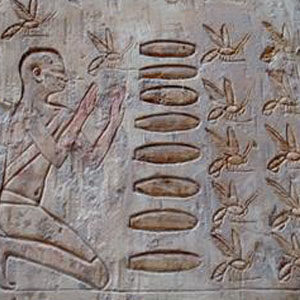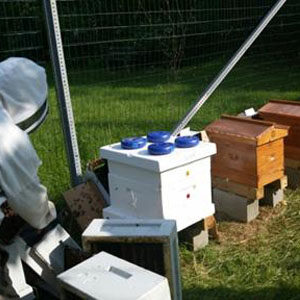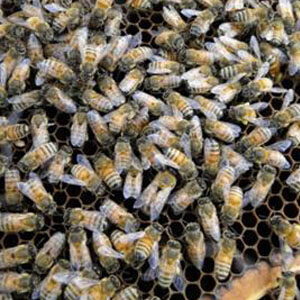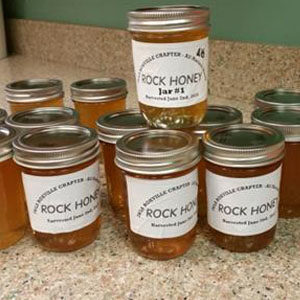Bee Keeping

The oldest honeybee hieroglyph goes back to just before 3000 BCE, Professor Gene Kritsky says. “It was a very ancient symbol in the Egyptian writings. But even in the Old Kingdom (2600-2160 BCE), beekeeping was an important activity organized by the state.” Of course, the Egyptians have a head start on our Chapter.
Of course, the Egyptians have a head start on our Chapter. We have established a small apiary and with expert guidance from one of our members, several individuals are now maintaining the hives.

Honey bees are disappearing across the country, putting $15 billion worth of fruits, nuts and vegetables at risk. In 2006 Beekeepers began noticing that seemingly healthy bees were simply abandoning their hives en masse. Researchers call the mass disappearance Colony Collapse Disorder, and they estimate that nearly one-third of all honey bee colonies in the country have vanished. Scientists studying the disorder believe a combination of factors are responsible for making bees sick, including pesticides, parasitic mites, an inadequate food supply and a new virus that targets bees' immune systems.

Maintaining healthy honey bee colonies is very important to Maryland agriculture. Crops valued in excess of $50 million require or benefit from honey bee pollination in the State. Managed colonies are increasingly important since most wild honey bees have died due to parasitic mites. Maryland beekeepers must annually register each honey bee colony (hive) they maintain. By knowing where the colonies are located, the Department of Agriculture can inspect them to help prevent the spread of disease between bees.

With work and luck, we can help maintain the bee population. As the result, the bees will provide a popular sweet treat that goes back to the time of the Ancient Egyptians.
